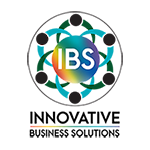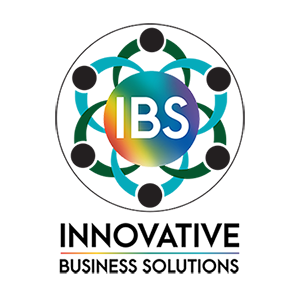Indigenous Banking at BDC
Aboriginal entrepreneurs and business owners face several obstacles in accessing financing for start-up, on-going operations, acquisitions, and expansions.
https://www.bdc.ca/en/i_am/aboriginal_entrepreneur/pages/default.aspx
National Housing Co-Investment Fund
Low-cost and forgivable loans for the construction, repair and revitalization of affordable housing.
Export Funding for Indigenous Businesses
Funding and financing can help you grow your Indigenous-owned business in international markets.
Investing in Canada Infrastructure Program: COVID-19 Resilience Stream
A new temporary COVID-19 Resilience stream, with over $3 Billion available in existing funding, has been created to provide provinces and territories with added flexibility to fund quick-start, short-term projects that might not otherwise be eligible under the existing funding streams.
https://www.infrastructure.gc.ca/plan/covid-19-resilience-eng.html#1
Ottawa giving $82.5M for Indigenous mental health support during Covid-19
Capital Facilities and Maintenance (CFM) Funding Program
For protection of health and safety assets, health and safety improvements, recapitalization/major maintenance and growth
YELLOWKNIFE (October 21, 2020) – Two new programs to support harvesters and families going out on the land in 2020-2021 are now taking applications.
- The Take a Family on the Land Program provides up to $10,000 in funding to engage families in outdoor learning experiences that encompass northern perspectives, values, and practices. Applications are being accepted from NWT Indigenous governments and organizations, community governments, and not-for-profit associations.
- The COVID Regional Training, Mentorship, and Support Program provide funding to support community-led opportunities for harvesting mentorship, on-the-land training and skills development, and supply of country foods into communities.
Regional Indigenous governments may apply for two streams of funding:
o COVID Harvest Subsidy: up to $10,000
o Community Training and Knowledge Exchange Program: up to $25,000
A third new program announced for 2020-2021, the Pilot Trapper Mentorship Program will be open for applications in November.
All application guidelines and forms are available online at www.enr.gov.nt.ca.
Applications for the Take a Family on the Land Program and the COVID Regional Training, Mentorship and Support Program must be received no later than 5:00 pm on November 20, 2020. Incomplete or late applications will not be assessed.
Funding must be spent by March 31, 2021, and activities must take place between October 2020 and March 2021.
For more information, please contact:
On the Land Unit
Department of Environment and Natural Resources
Government of the Northwest Territories
Email: [email protected]
Toll-free phone: 1-866-611-FURS (3877)
Yellowknife, le 21 octobre 2020 – Deux nouveaux programmes de financement destinés à soutenir les chasseurs et les familles qui fréquenteront les terres ancestrales en 2020-2021 acceptent d’ores et déjà les candidatures.
- Le Programme permettant aux familles d’aller sur les terres ancestrales offre du financement pouvant atteindre 10 000 $ pour permettre aux familles de participer à des activités sur les terres ancestrales afin d’en apprendre davantage sur les perspectives, valeurs et pratiques du Nord. Les demandes doivent parvenir aux gouvernements et organisations autochtones, aux gouvernements communautaires ou aux associations à but non lucratif des TNO.
- Le Programme régional de soutien à la chasse, à la formation et au mentorat dans le contexte de la Covid‑19 propose du financement pour soutenir les activités de mentorat dans le domaine de la chasse proposées au sein des collectivités, les initiatives de formation dans la nature et de perfectionnement des compétences, ainsi que l’approvisionnement des collectivités en aliments traditionnels.
Les gouvernements autochtones régionaux peuvent accéder à deux catégories de financement :
o La Subvention à la chasse dans le contexte de la Covid-19 (financement pouvant atteindre 10 000 $);
o Le Programme de formation communautaire et de diffusion du savoir (financement pouvant atteindre 25 000 $).
Les demandes pour un troisième nouveau programme annoncé pour 2020-2021, le Programme pilote de mentorat des trappeurs, seront acceptées dès novembre.
Vous trouverez tous les formulaires de demande en ligne au www.enr.gov.nt.ca/fr.
Les demandes pour le Programme permettant aux familles d’aller sur les terres ancestrales et le Programme régional de soutien à la chasse, à la formation et au mentorat dans le contexte de la Covid‑19 doivent nous parvenir au plus tard à 17 h, le 20 novembre 2020. Les demandes incomplètes ou reçues après la date limite ne seront pas prises en considération.
Les fonds doivent être dépensés avant le 31 mars 2021, et les activités doivent avoir lieu entre octobre 2020 et mars 2021.
Pour en savoir plus, veuillez communiquer avec :
Programmes sur les terres ancestrales
Ministère de l’Environnement et des Ressources naturelles
Gouvernement des Territoires du Nord-Ouest
Courriel: [email protected]
Tél. sans Frais : 1-866-611-FURS (3877)
Government announces new, targeted support to help businesses through pandemic
New T4 Reporting Requirements For Employers
For the 2020 tax year, the Canada Revenue Agency (CRA) is introducing additional reporting for the T4 slip, Statement of Remuneration Paid. Additional reporting requirements will apply to all employers and will help the CRA validate payments under the,
- Canada Emergency Wage Subsidy (CEWS),
- Canada Emergency Response Benefit (CERB),
- Canada Emergency Student Benefit (CESB).
Please Note: Employers who have already filed their T4 slips and summary for 2020 will not need to refile.
How To Report Employment Income During Covid-19 Pay Periods
For the tax year 2020, in addition to reporting employment income in Box 14 or Code 71, use new other information codes when reporting employment income and retroactive payments in the following periods:
- Code 57: Employment income – March 15 to May 9
- Code 58: Employment income – May 10 to July 4
- Code 59: Employment income – July 5 to August 29
- Code 60: Employment income – August 30 to September 26
Eligibility criteria for the CEWS, CERB, and CESB is based on employment income for a defined period. The new requirement means employers should report income and any retroactive payments made during these periods.
Support For Employers
- Canada Emergency Rent Subsidy (CERS)
Canadian businesses, non-profit organizations, or charities with a revenue-drop due to COVID-19, may be eligible for a subsidy to partly cover their commercial rent or property expenses, starting on September 27, 2020, until June 2021.
- Canada Emergency Wage Subsidy (CEWS)
Canadian employers, who have seen a drop in revenue due to the COVID-19, might be eligible for a subsidy to partly cover their employee wages, retroactive to March 15. This subsidy will help employers to re-hire workers, prevent further job losses, and will help to get back into normal operations.
- 10% Temporary wage subsidy for employers
The Government announced a 10% temporary wage subsidy for employers for a period of 3 months.
Eligible employers:
- Individuals (excluding trusts)
- Certain partnerships
- Non-profit organizations
- Registered charities
- Canadian-controlled private corporations)
Considering that the above category of employers pays a salary, wages, or taxable benefits to employees, between March 18, 2020, and June 19, 2020, can reduce payroll remittances of federal, provincial, or territorial income tax by the amount of the subsidy. This measure is only applicable to remittances made to the CRA.
Deferral of GST/HST Remittances
The CRA will allow all businesses to defer, until June 30, 2020, any GST/HST payments or remittances that become owing on or after March 27, 2020, and before July 2020. This means that no interest will apply if payments or remittances are made by June 30, 2020.
Businesses that continue to experience difficulty in remitting GST/HST and customs duty amounts owing can contact the CRA and Canada Border Services Agency (CBSA) to make a request for the cancellation of penalties and interest, and/or for a flexible payment arrangement with the CRA.
Detailed Information: https://bit.ly/3mMZio0


